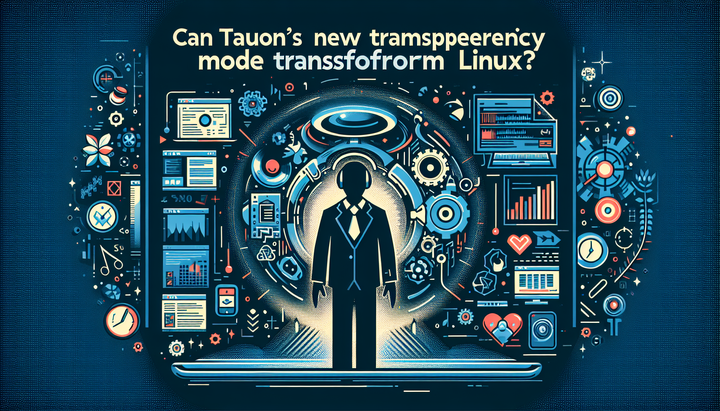Is Gmail Compromising National Security?

Introduction: The Unlikely Merge of Personal Email and National Security
Recent reports have revealed that senior officials, including the National Security Adviser Michael Waltz, may have been using personal Gmail accounts to communicate sensitive information. This revelation raises a critical question: Can personal email platforms like Gmail truly coexist with the rigorous security requirements expected of government communications?
The Core Controversy: Personal Email vs. Secure Government Channels
Traditionally, government agencies are required to use secure, dedicated networks and devices for official communications. The use of personal email accounts to exchange details about sensitive military operations and appointments challenges this norm, posing serious risks not only for national security but also for compliance with legal and record-keeping standards.
Cybersecurity Risks and the Vulnerabilities of Personal Email
One of the primary concerns with the use of Gmail for official communications is the inherent risk of data breaches. Unlike secured government networks, personal email platforms are not built to handle classified data or highly sensitive operational details.
- Data Breaches: Commercial email services can be susceptible to hacking attempts and data breaches, potentially exposing sensitive information to unauthorized entities.
- Record-Keeping Issues: Government regulations mandate that all official communications are archived and preserved. Personal accounts complicate this process by inadvertently mixing public and private data.
- Compliance Challenges: Legal frameworks require strict adherence to protocols when handling sensitive information, and the use of personal email risks non-compliance with these regulations.
The Incident in Detail: What Happened?
According to reports from sources at The Washington Post, a senior aide used a personal Gmail account to consult with officials about sensitive military positions and weapon systems amidst an ongoing conflict. It is claimed that even when the situation called for secure communication, there were lapses where Gmail and even messaging apps like Signal were used inappropriately.
How Did This Happen?
- Inadvertent Disclosure: Alongside the use of Gmail, officials accidentally mixed personal schedules and sensitive data, further escalating the potential for leaks.
- Improper Protocols: Despite clear instructions for using official channels, there were repeated instances where personal communication platforms were employed.
- Historical Irony: This situation is especially ironic given that Waltz was an outspoken critic of similar practices in the past, notably when he criticized the use of private email servers by other officials.
Implications for National Security
The misuse of personal email has multiple implications:
- Operational Security (OPSEC): The mixing of personal and official communications creates vulnerabilities that could be exploited by adversaries to gain insights into national defense strategies.
- Public Trust: Continuous reports of security lapses erode public confidence in the government's ability to safeguard sensitive information.
- Future Policy Revisions: Incidents like these often trigger calls for stricter policies regarding the use of non-secure platforms, potentially leading to a reevaluation of existing security measures in government communications.
The Broader Context: Technology, Security, and Government
This incident is not occurring in isolation. The digital age has forced governments to adapt rapidly, often leaning on commercial platforms for convenience. However, the unique needs of national security demand that these platforms be re-assessed for their ability to handle sensitive data:
- Emerging Technology Trends: With the rise of AI-driven security systems and advanced encryption methods, there is a push toward integrating cutting-edge technology into national security frameworks.
- Low-Code/No-Code Solutions: Some governments are exploring low-code solutions for secure communications that can be rapidly deployed while ensuring compliance with strict security protocols.
- Expert Opinions: Cybersecurity specialists emphasize that any deviation from secure platforms inevitably increases the attack surface of governmental communications.
Lessons from Past Incidents: Historical Parallels and Consequences
The controversy echoes past incidents where mishandling of sensitive information through non-secure channels led to significant political and security fallout. In previous cases:
- Misuse of personal email accounts resulted in unauthorized disclosures that compromised military operations.
- Official investigations were launched, leading to policy overhauls and stricter enforcement of communication protocols.
- Public trust was severely undermined, forcing government institutions to work hard to restore credibility.
How Can Technology Help?
In the wake of such controversies, technology offers some answers. Here are several ways in which emerging technologies can support the shift toward more secure communications:
- Encryption and Secure Messaging: Modern encryption tools and dedicated secure messaging platforms can ensure that sensitive communications remain proprietary and inaccessible to unauthorized users.
- Automated Compliance Tracking: Artificial Intelligence (AI) can automatically flag potential compliance issues, ensuring that communications are archived and handled according to legal standards.
- Integrated Communication Platforms: Future systems may incorporate secure, government-approved communication channels that blend the ease-of-use of personal platforms with robust security features.
Balancing Convenience with Security
There is no denying that the convenience of commercial platforms like Gmail is a significant factor in their widespread usage. However, the case in point reveals a delicate balance between ease of use and the uncompromising need for security in high-stakes environments.
While many government officials might rely on personal tools for quick communication, the following measures are essential to strike a balance:
- Regular Training: Frequent training sessions on cybersecurity best practices can ensure that officials understand the importance of using secure channels.
- Stricter Policies: Implementing rigid policies that mandate the exclusive use of secure platforms for sensitive communications can help prevent inadvertent leaks.
- Technological Upgrades: Investing in state-of-the-art technology that meets both ease-of-use and stringent security guidelines is critical for modern governance.
Government Response and Future Outlook
In response to these revelations, government spokespeople have defended their practices, emphasizing that classified information was always handled via secure channels while personal accounts were used only for routine calendar scheduling and non-sensitive communications. However, these explanations have done little to silence critics who argue that the mere association of personal email with official business places national security at risk.
Expert Insights and Opinions
Leading cybersecurity experts have weighed in on the issue:
- Expert 1: "Even a small lapse in security protocols can have a domino effect on national security. It is imperative that officials rely solely on approved channels for any communication involving sensitive data."
- Expert 2: "We are at a crossroads where technology and governance must meet. Governments need to embrace more secure, integrated systems that preempt such vulnerabilities before they can be exploited."
- Expert 3: "The evolution of digital communication demands that we reconfigure our understanding of security. This incident should serve as a wake-up call for modernizing national data protection policies."
The Role of Industry Research and Development
Several technology companies and defense contractors are now prioritizing research in secure communication systems. The following trends are shaping the landscape:
- AI-Driven Security Enhancements: Companies are utilizing machine learning algorithms to detect anomalies and potential breaches in real time.
- Next-Generation Encryption: Advanced encryption methods are being developed to ensure that even if data is intercepted, it remains indecipherable to unauthorized users.
- Interoperability Solutions: Efforts are underway to ensure that government communication systems can safely interface with common commercial platforms without compromising security.
Future Implications and the Way Forward
Moving forward, the debate over the use of personal email for official communications is likely to intensify. The potential fallout from such practices includes not only a reassessment of security protocols but also a comprehensive overhaul of how sensitive data is managed in a digital age.
Key future considerations include:
- Implementing system-wide upgrades that integrate state-of-the-art encryption and secure channels.
- Conducting rigorous audits and risk assessments to identify gaps in current protocols.
- Encouraging cross-industry collaboration between government agencies and technology providers to develop robust cybersecurity frameworks.
Conclusion: Bridging the Gap Between Convenience and Security
The controversy surrounding the use of Gmail for official communication highlights a fundamental challenge: How do we balance the convenience of modern digital tools with the uncompromising need for national security? The answer lies in embracing technology innovations while rigorously enforcing security standards. As the digital landscape evolves, so too must the methods we use to protect our most sensitive information. For government officials, cybersecurity is not just a technical requirement—it is a national imperative.
Call to Action
Stay informed about the latest trends in email security and digital governance. Experts urge government agencies to review and update their communication protocols regularly. For developers and IT professionals, this serves as a powerful reminder that technology must always serve the dual goals of efficiency and security.
By understanding the risks associated with the use of personal email for sensitive communications, stakeholders across the board can work together to build a safer, more secure digital future. The challenge is significant, but with the right combination of technology, policy, and vigilance, it is one that can be met head-on.



Comments ()